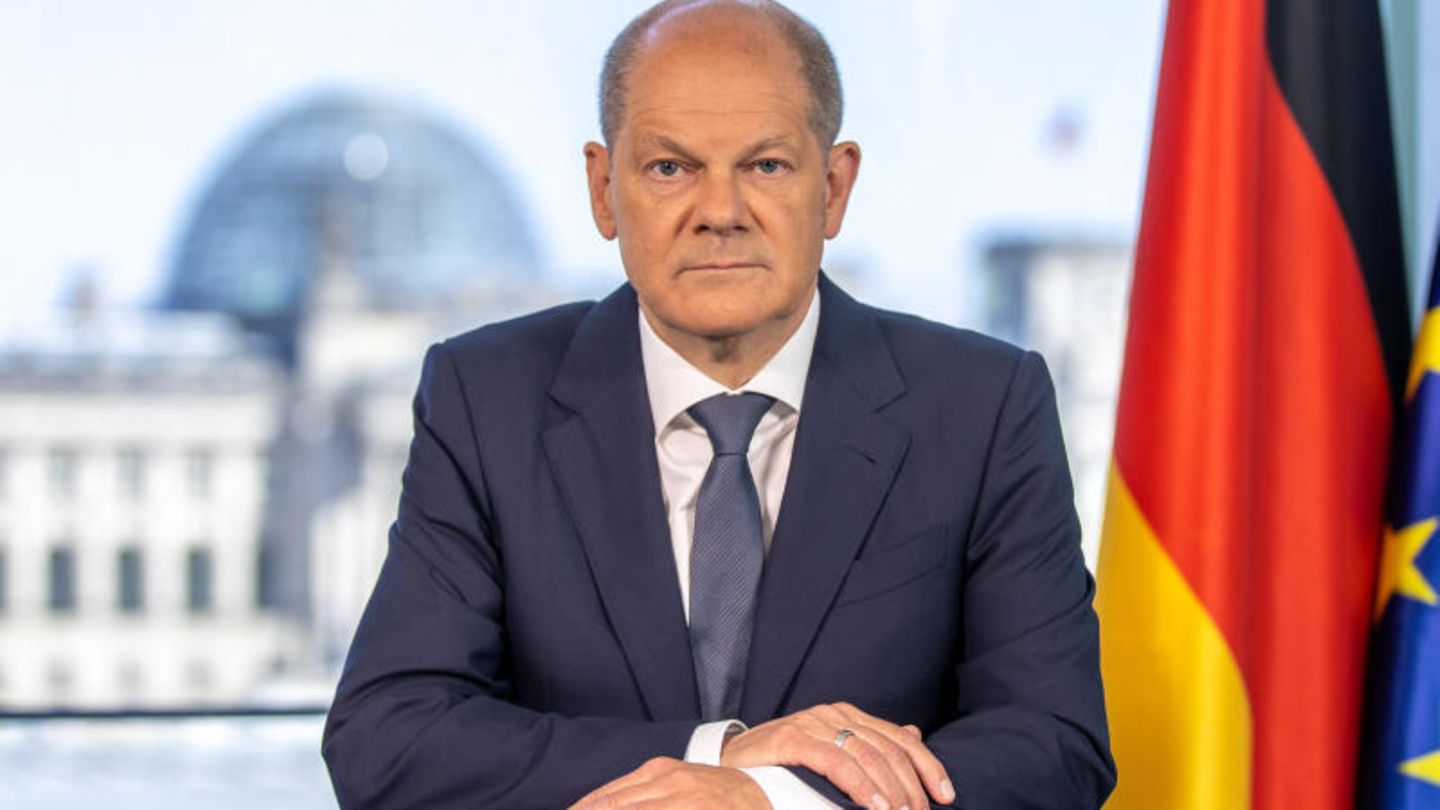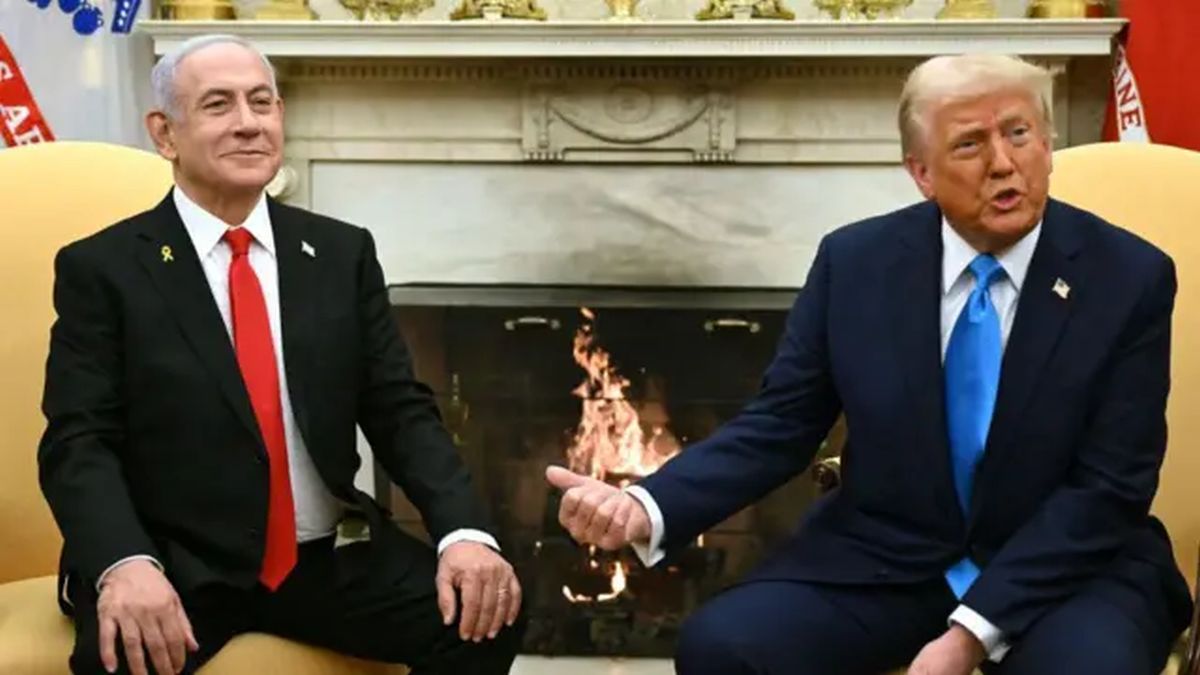press review
In a TV speech to mark the 77th anniversary of the end of World War II, Chancellor Olaf Scholz defended Germany’s historical responsibility in the Ukraine war. But for many, his words didn’t go far enough. The press review at a glance.
On May 8, 1945, the Second World War ended in Europe. On the occasion of the 77th anniversary, Chancellor Olaf Scholz highlighted Germany’s historic responsibility in supporting Ukraine against Russia’s war of aggression. “We learned a key lesson from the catastrophic history of our country between 1933 and 1945,” said Scholz in his television speech on Sunday. It read: “Never again war. Never again genocide. Never again tyranny.” In the current situation, this can only mean: “We defend justice and freedom – on the side of the attacked. We support Ukraine in the fight against the aggressor.”
The Chancellor’s speech met with a great deal of criticism in the media. His words were not clear enough for some political commentators, while others lacked empathy for Ukraine. The press reviews at a glance.
No support speech for Ukraine, but a calming speech for the Germans
“The mirror”: It started out big. Scholz recalled May 8, 1945, the day the war ended in Europe, remembered the 60 million dead and from there drew attention to Putin’s war against Ukraine. Scholz did not spare harsh words against the Russian President, calling his war barbaric. As appropriate as these words are, the large gap left by Scholz’s speech is inappropriate. He said nothing about the brave struggle of the Ukrainians, nothing about the suffering of the people in Mariupol and elsewhere. (…) Scholz did not give a speech of support for Ukraine, but a calming speech to concerned Germans. His words are intended to convey to them that there is someone in the Chancellery who primarily cares about the security of the Federal Republic and averts damage to it.
“The time”: Conversely, what Scholz didn’t talk about is revealing. The diplomatic crisis between Ukraine and Germany after Ukraine temporarily uninvited the Federal President has only just been resolved. She made it clear to the whole world how deep the anger in Ukraine at the earlier closeness of the Social Democrats towards Russia runs. Wouldn’t today have been a good time to announce a political reappraisal of this behavior on this stage? (…) Scholz obviously wants to spread a feeling of security and predictability without going into the uncertainties, contradictions and ambivalences of his own politics. But he repeated promises today that could soon be obsolete. Should the war continue to escalate, then this standstill will become something deeply troubling. What good is a rock solid if the ground it stands on trembles?
“Berlin newspaper”: Not everyone is a hero these days. It might even be better that way. But what about a speech at the end of World War II if the name of the city of Mariupol is not even mentioned? What’s the point of a speech in these times when there isn’t a single word of appreciation, let alone admiration, for those who defend themselves against such a breach of civilization? And not a sentence of pity for the victims? Such a speech would have been better not given at all.
Speech by Olaf Scholz: “A voluntary commitment by the Federal Chancellor”
“Southgerman newspaper”: Putin will not win the war. The Chancellor predicts that Ukraine will survive, freedom and security will triumph. It is this confident message that will remain of war commemoration in wartime. If you take it seriously, it is also a self-commitment of the Federal Chancellor. 77 years after the end of World War II, the future of Europe is being decided in the Bloodlands. Germany must make its contribution so that the arbitrariness of an unleashed imperialist does not determine this future. Scholz stands by his word.
“Daily mirror”: In this respect, the Scholz speech on this great occasion is liberating again. Because it is a self-assurance for us, the citizens. This “We are like this, we act like this”, which the chancellor doesn’t let anything take away from him, not public voices, not moods, can, in his own way, help to calm people down. At least someone gives the impression that they know what they are doing and why. And in that, this chancellor, this government, is steady. It’s not the worst thing to say: this government will refrain from anything that can be seen as entering the war and will pursue this path together with its allies.
“The world”: In basketball one would speak of “blocking” – hitting the ball out of the trajectory. With his speech, the embargo was at 6 p.m., the Social Democratic Chancellor occupied the most news-intensive slot of the week: At the same time, the first forecasts for the state elections in Schleswig-Holstein were received. According to polls, it had long been clear that Daniel Günther would win the election – a small triumph for the CDU and Friedrich Merz. And Scholz distracted attention from this triumph by publishing the speech at 6 p.m. Because in the news hierarchy, a Chancellor’s speech ranks higher than the outcome of a state election.
Source: Stern
David William is a talented author who has made a name for himself in the world of writing. He is a professional author who writes on a wide range of topics, from general interest to opinion news. David is currently working as a writer at 24 hours worlds where he brings his unique perspective and in-depth research to his articles, making them both informative and engaging.




